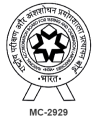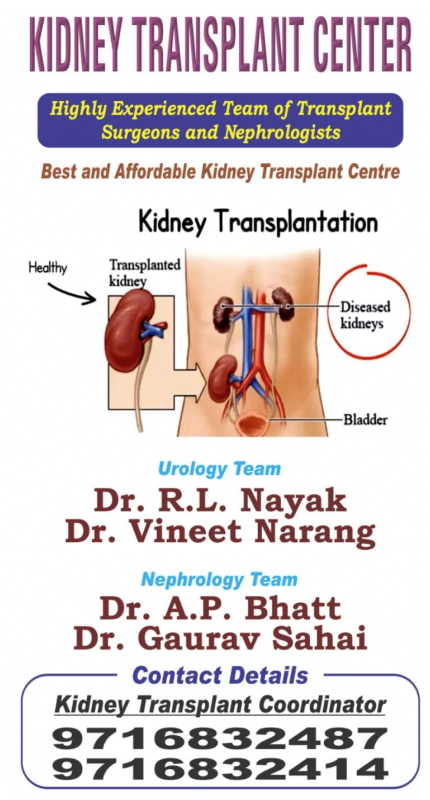Holy Family Hospital’s Transplant Services (Renal) department is dedicated to providing compassionate and specialized care for patients suffering from kidney failure, also known as end-stage renal disease (ESRD). We offer comprehensive care for patients in need of dialysis or kidney transplantation, providing the highest standards of medical treatment, support, and long-term care.
Our team of specialists, including nephrologists, transplant surgeons, and dedicated nursing staff, is highly experienced in managing both routine and complex kidney conditions. Whether through dialysis or transplantation, we aim to improve the quality of life and health outcomes for patients with renal disease.
For more information or to schedule a consultation, please contact our Transplant Helpline at +91 7503132549.
We provide a comprehensive range of services dedicated to kidney transplant and dialysis patients. Our key services include:
- Kidney Transplantation: We offer both living donor and deceased donor kidney transplants, providing life-saving treatment for patients with ESRD. Our transplant team ensures the best possible outcomes through careful evaluation, matching, and post-operative care.
- Hemodialysis: Our hospital provides advanced hemodialysis treatments, using the latest equipment to remove waste products from the blood and help patients manage their kidney function. Our dialysis unit provides a comfortable environment for regular treatment sessions, ensuring patient safety and care.
- Peritoneal Dialysis: For patients seeking an alternative to hemodialysis, peritoneal dialysis is offered, which allows for the removal of toxins through the abdominal cavity.
- Living Donor Program: We facilitate and guide potential living donor transplants, providing detailed evaluations and counseling for individuals considering kidney donation. Living donor transplants provide better long-term outcomes and shorter waiting times for recipients.
- Post-Transplant Care: After a kidney transplant, our patients receive continued care, including regular monitoring and management of medications to prevent organ rejection and ensure the health of the transplanted kidney.
We offer various therapies and procedures designed to support renal health and ensure transplant success. Our procedures include:
- Hemodialysis: routine and safe procedure for patients with kidney failure, where a dialysis machine removes harmful waste products from the blood. Our dedicated team of nephrologists and nurses closely supervises each session to ensure comfort and care.
- Peritoneal Dialysis: This home-based therapy involves the use of a dialysis solution that absorbs waste products from the abdominal lining. It provides flexibility for patients who prefer to manage their treatment at home.
- Kidney Transplant Surgery: We perform kidney transplants with precision and care, ensuring that both donors and recipients are well-prepared for the surgery. Our surgeons and transplant specialists work together to ensure successful outcomes and quick recovery.
- Living Donor Evaluation: Our program supports healthy individuals who wish to donate a kidney. Potential donors undergo thorough comprehensive medical evaluation and health assessments to ensure their safety and compatibility testing with the recipient. This ensures the best possible match and minimizes the risk of complications.
- Post-Operative Monitoring and Care: Our transplant services extend beyond surgery. After transplantation, we provide comprehensive follow-up care to monitor the health of the transplanted kidney, adjust medications, and support long-term recovery.
We utilize state-of-the-art facilities and equipment to enhance our transplant and dialysis care, including:
- Dialysis Unit: Our advanced dialysis unit is designed to offer a safe and comfortable environment for patients undergoing regular hemodialysis treatments. The facility is equipped with high-quality dialysis machines and is staffed by experienced professionals to ensure effective treatment.
- Transplant Surgical Suite: Our fully equipped surgical suites are specifically designed for complex kidney transplant procedures. We focus on maintaining a sterile, safe, and comfortable environment to support successful outcomes.
- Post-Operative Care: We provide a dedicated transplant recovery area, where patients receive intensive post-operative monitoring, ensuring that their new kidney functions properly and any complications are promptly addressed.
- Donor and Recipient Evaluation Rooms: Our facility includes dedicated evaluation areas and specialized rooms where potential donors and recipients undergo thorough medical and psychological assessments to ensure their readiness and compatibility for the transplant process.
- Comprehensive Pharmacy Services: Our pharmacy team works closely with transplant patients to provide the necessary medications for post-surgical care, including immunosuppressants to support patients’ health and prevent organ rejection.
Our Transplant Services (Renal) department is led by a team of highly qualified specialists, including nephrologists, transplant surgeons, and nurses. They work together to provide seamless care throughout the transplant process—from evaluation to surgery and post-operative follow-up.





